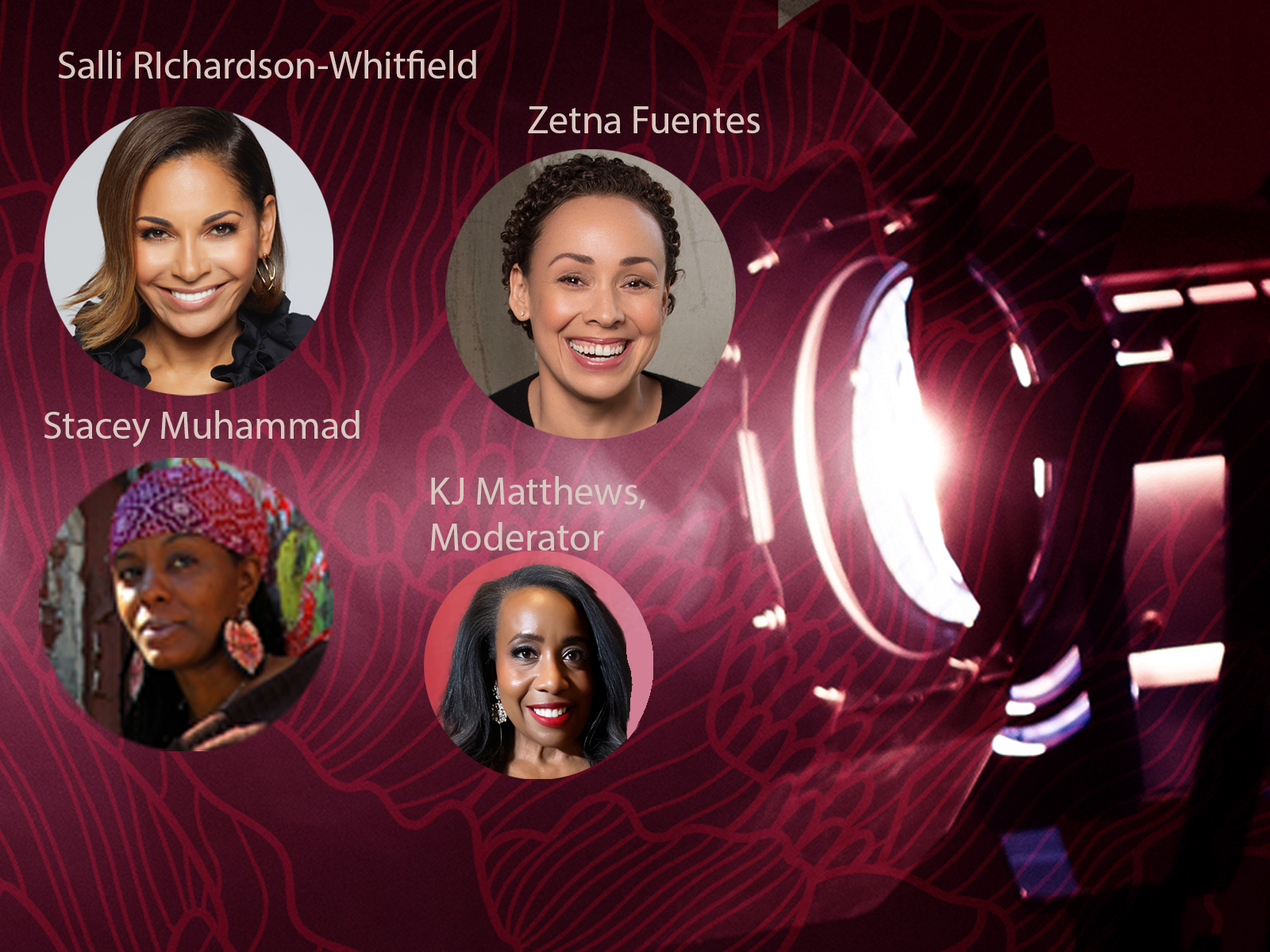
- HFPA
Women Directors’ Symposium – It’s a Wrap
Glass ceilings broken. Sisterhood on set. And careers of many firsts. This best sums up the experiences and careers of the three panelists Zetna Fuentes (Ray Donovan, The Great, The Old Man, The Girl from Plainville, Bosch: Legacy) Stacey Muhammad (Harlem, Love Life, Manifest, Cross) and Salli Richardson-Whitfield (Eureka, Queen Sugar, The Gilded Age, Winning Time).
In this year’s Women Directors’ Symposium, presented by the Golden Globe Awards and moderated by the HFPA’s KJ Matthews, the three women talked about the unique and sometimes difficult positions of female filmmakers of color in the television world, but also about the blessings that come with having a different perspective and the opportunity to bring that perspective to their projects.
Richardson-Whitfield spoke to the fact that streamers have given her “a lot more freedom” after doing multiple network shows, which she said taught her how to be fast and time-efficient, “but very quickly I wanted to have that time to show who I am as a filmmaker.”
Fuentes remarked that she did not really change the way she worked when it came to different platforms, but added, “I really let the story dictate the approach to directing: it’s really about the script.”
“I was an indie filmmaker for 15 years,” remembered Muhammad, agreeing with Richardson-Whitfield: “What excited me about working on streaming platforms was the creative freedom and being the type of filmmaker I’d been in my indie career, but as Zetna said – it all starts on the page.”
The directors covered a lot of ground during the 50 minute-symposium. How to handle actors, for instance: “There’s a lot of different skill sets you have to have. You gotta be able to deal with big worlds, big talent and personalities that come with that,” said Richardson-Whitfield. As Fuentes put it: “You gotta know what you’re doing.”
The three also touched on the subject of gender: “We have to be better prepared; we have to get along with people more; there’s so many boxes we have to tick off better.” Both Richardson -Whitfield and Muhammad paid tribute to Fuentes, who they say paved the way for them in terms of what a woman of color can achieve and how far she can go: “I take it very personally if women of color come in and they don’t work as hard as me, because I know that we have to. It’s unfortunate, but we do have to work harder so we don’t fail, and the next person is given the benefit of the doubt.”
Muhammad, who directed her first TV episode in 2019, praises both of her fellow panelists, whom she says she had watched for years: “If it weren’t for them, I wouldn’t be here. And in addition to the skill, it’s also how we treat people. There’s a lot less tolerance after the pandemic for the old ways of directing and interacting with people on set. We’re a lot less tolerant when it comes to mistreatment.”
It is interesting – or maybe it is that special female trait – that when these women discuss the film industry, they make a point of bringing up decency (and sometimes the lack thereof) when it comes to the work environment, and agree that they themselves put an emphasis on it. Other, yet similar, subjects included respect and trust on the part of the producers who had offered them their jobs in the first place.
Stacey Muhammad had an unusual experience in getting her start on Queen Sugar, a completely female-dominated show that celebrated women, not just in storyline and onscreen, but in important and high-powered positions behind the camera: “What I loved about the culture of Queen Sugar, for most of the women, it was our first-time directing television. The crew and the producers and everyone were very nurturing. I feel like the line-up of directors is a lot more diverse that it was before Queen Sugar came along and provided all these opportunities for women.”
After having directed an episode in an earlier season, Zetna Fuentes was handpicked by the This Is Us producer John Requa for the episode Miguel because he was convinced she would be best suited to show the Puerto Rican immigrant experience accurately. She got the job in the Paramount parking lot: “I was walking to my car, having worked on another show, when he ran out of his trailer and offered me the job. It was for the final season, and it was going to be a stand-alone episode that told that character’s backstory, how he got to America and tie in all these wonderful threads. It was the third-to-last episode that aired.”
When it comes to breaking glass ceilings, Salli Richardson-Whitfield broke another barrier recently when she became an executive producer on the very male-dominated basketball drama Winning Time: The Rise of the Lakers Dynasty, after having directed the last two episodes of season 1.
All three directors are now prepping their first feature films. In conclusion of the panel, host KJ Matthews asked them what their advice would be for the next generation of female directors. To hear their answers, please watch the very interesting panel by these deeply engaging women right HERE!

